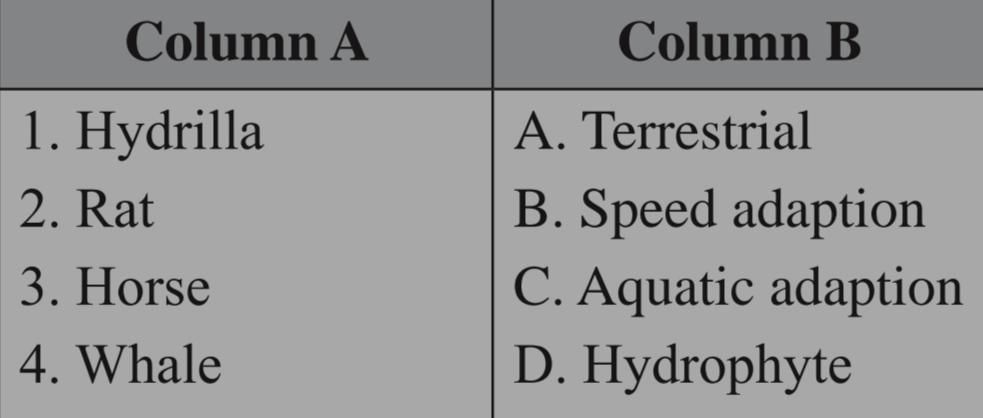Class 9 Exam > Class 9 Tests > Olympiad Test: Natural Resources- 3 - Class 9 MCQ
Olympiad Test: Natural Resources- 3 - Class 9 MCQ
Test Description
10 Questions MCQ Test - Olympiad Test: Natural Resources- 3
Olympiad Test: Natural Resources- 3 for Class 9 2025 is part of Class 9 preparation. The Olympiad Test: Natural Resources- 3 questions and answers have been prepared
according to the Class 9 exam syllabus.The Olympiad Test: Natural Resources- 3 MCQs are made for Class 9 2025 Exam.
Find important definitions, questions, notes, meanings, examples, exercises, MCQs and online tests for Olympiad Test: Natural Resources- 3 below.
Solutions of Olympiad Test: Natural Resources- 3 questions in English are available as part of our course for Class 9 & Olympiad Test: Natural Resources- 3 solutions in
Hindi for Class 9 course.
Download more important topics, notes, lectures and mock test series for Class 9 Exam by signing up for free. Attempt Olympiad Test: Natural Resources- 3 | 10 questions in 20 minutes | Mock test for Class 9 preparation | Free important questions MCQ to study for Class 9 Exam | Download free PDF with solutions
Detailed Solution for Olympiad Test: Natural Resources- 3 - Question 1
Detailed Solution for Olympiad Test: Natural Resources- 3 - Question 2
Olympiad Test: Natural Resources- 3 - Question 3
In nitrogen cycle which bacteria are responsible for nitrification
Detailed Solution for Olympiad Test: Natural Resources- 3 - Question 3
Detailed Solution for Olympiad Test: Natural Resources- 3 - Question 4
Olympiad Test: Natural Resources- 3 - Question 5
What would happen, if all land and water present in the environment is converted to ozone?
Detailed Solution for Olympiad Test: Natural Resources- 3 - Question 5
Olympiad Test: Natural Resources- 3 - Question 6
Which of the following soil is transported by air?
Detailed Solution for Olympiad Test: Natural Resources- 3 - Question 6
Olympiad Test: Natural Resources- 3 - Question 7
Signs of eutrophication of water bodies include
Detailed Solution for Olympiad Test: Natural Resources- 3 - Question 7
Detailed Solution for Olympiad Test: Natural Resources- 3 - Question 8
Detailed Solution for Olympiad Test: Natural Resources- 3 - Question 9
Olympiad Test: Natural Resources- 3 - Question 10
The two forms of oxygen found in the atmosphere are
Detailed Solution for Olympiad Test: Natural Resources- 3 - Question 10
Information about Olympiad Test: Natural Resources- 3 Page
In this test you can find the Exam questions for Olympiad Test: Natural Resources- 3 solved & explained in the simplest way possible.
Besides giving Questions and answers for Olympiad Test: Natural Resources- 3, EduRev gives you an ample number of Online tests for practice
Download as PDF




















